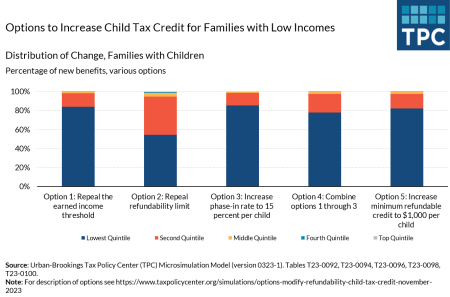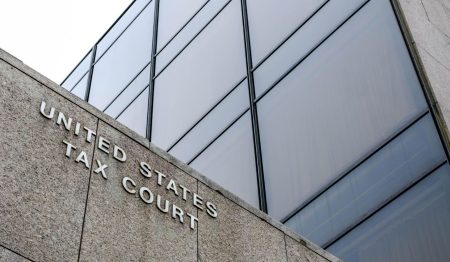Tax tips on TikTok and other social media can be helpful. But when a tax strategy sounds too good to be true, it should give you pause even if—or perhaps especially if—a post, reel, or clip is circulated widely. Going viral doesn’t mean it’s any more valuable. In some instances, those numbers may be artificially bumped as they’re shared by tax professionals to point out the flaws—as happened recently on X, formerly known as Twitter, in a thread discussing the infamous Augusta Rule. This month, a ruling from the Tax Court clarified some specifics that TikTok left out.
Here’s the strategy touted in the since-deleted tweet sharing the TikTok reel: Businesses rent space in a business owner’s home for a monthly meeting. The business would pay the owner and claim the corresponding deduction. The business lowers its taxable income, and the business owner picks up the income, tax-free, thanks to the so-called Augusta Rule. Great, right?
The Augusta Rule
To understand the premise, you first have to understand the Augusta Rule. The August Rule is another name for an exclusion found in section 280A of the tax code. Under that section, if you rent your personal residence for fewer than 15 days, you do not report any of the rental income and do not deduct any expenses as rental expenses. However, if you rent your home for 15 days or more during the year, you would include all your rental income in your income.
The law, which has been around since 1976, is sometimes called the Augusta Rule, in a nod to the Masters, which is hosted by the Augusta National Golf Course each year in Augusta, Georgia. Local homeowners saw the income potential, but funds you receive for the use of real estate – even if it’s your personal residence – are usually taxable as rental income. It didn’t seem very sensible to require the inclusion of rental income for a short-term rental that was never intended to be treated as a business. The result was the 280A exclusion.
Ordinary and Necessary
Another tax code section is important to understand in this context, too: Section 162. To claim a deduction for business expenses, Section 162 requires that the expense is “ordinary and necessary.” According to the IRS, an ordinary expense is common and accepted in your trade or business. The IRS defines a necessary expense as “one that is helpful and appropriate for your trade or business.” For an expense to be deductible, it needs to be both.
Facts
That brings us to a recent Tax Court case: Gary J. Sinopoli, Jr. and Melissa M. Sinopoli, et al., v. Commissioner of Internal Revenue. There were multiple taxpayers involved—hence the “et al.” Cases were consolidated because they involved the same facts and issues.
In Sinopoli, a group of medical professionals formed an S corporation called Planet LA, LLC, in Mississippi. The business was a franchisee of Planet Fitness
PLNT
Before 2015, the taxpayers occasionally met at a hospital where they worked or at Planet’s fitness center in Gretna, Louisiana, to discuss company business. Because of the distance and their work schedules, it was difficult to schedule meetings where all of the shareholders could attend, and occasionally one or more of them missed a meeting.
Their solution? Meet in their homes. Beginning in 2015, the taxpayers reportedly began paying rent out of the business in exchange for the use of their homes for meetings. According to court documents, when these business meetings were held, the taxpayers were generally the only attendees, but, occasionally, one of their wives attended. Other family members were home during some of the meetings.
At tax time, the taxpayers generally reported the rent as income on Schedule E for the years in question and excluded it from their gross income, thanks to the Augusta Rule.
Audit
IRS Revenue Agent Jacob Burgess was assigned to examine the tax returns of the company and the taxpayers.
According to Burgess, the taxpayers did not obtain an appraisal of the rental value of their residences as meeting space. Instead, Dr. Sinopoli researched rental rates for meeting spaces where the taxpayers lived and determined that meeting spaces rented at $1.83 per square foot. He used that figure to calculate rent for the residences’ common areas. Initially, the monthly rent to each taxpayer, which was based on the size of the common space, was different. However, at some point, the company began paying each taxpayer $3,000 in monthly rent.
At an audit, the taxpayers have the burden of proof to justify their deductions. That means that they needed to prove that they held these meetings. Unfortunately for the taxpayers, they could substantiate just 12 meetings in 2016 and nine meetings in 2017 to the IRS.
Remember that for a business expense to be deductible, it has to be necessary and ordinary. Expenses related to a business meeting would usually clear that hurdle—assuming that business was conducted. According to court documents, however, the taxpayers “failed to produce any credible evidence of what business was conducted at such meetings, and their testimony was vague and unconvincing regarding the meetings.”
Even if an expense is ordinary and necessary, the cost is deductible only to the extent that it is reasonable in amount. Burgess also conducted some research during the audit. He determined that locally available meeting space accommodating 500 to 1,200 people rented for approximately $500 for a full or half day (the taxpayers just needed space for three people).
On examination, Burgess opted to allow a $500 rent expense for each meeting that the taxpayers could substantiate with notes of an actual meeting. As a result, the IRS disallowed the rent deduction for the 2015 year in its entirety and allowed rent expense deductions of $6,000 and $4,500 for 2016 and 2017, respectively.
Tax Court
The matter went to Tax Court. The Court noted that the taxpayers did not offer written documentation, such as minutes, agendas, or calendars, to prove that all the claimed meetings happened. Additionally, the Court didn’t find the taxpayers’ testimony credible regarding the frequency of meetings during the years at issue. It was, the Court reported, “inconsistent,” finding that the taxpayers did not recall the number of meetings that took place.
The company deducted rent expenses for three monthly meetings—one at each residence. But, at trial, the Tax Court found that the taxpayers did not establish that meetings occurred at that frequency. They established one meeting per month for January 2016 through September 2017. They also established through testimony that some meetings occurred during 2015, so the Tax Court allowed a deduction of rent for 12 meetings for 2015.
The company had deducted $290,900 in rent that it allegedly paid to the taxpayers over less than three years. The Tax Court agreed with the IRS that it appears that the taxpayers “adopted a tax savings scheme to distribute Planet’s earnings…through purported rent payments, claim rent deductions, and exclude the rent from their gross income relying on section 280A(g).”
The Tax Court found that the IRS’ proposal of $500 per month was “actually generous,” noting that only small portions of the residences were used for the meetings when they occurred. The company, the Tax Court reasoned, was not entitled to $290,900 in deductions but instead just $6,000 for 2015 (12 meetings × $500), $6,000 for 2016 (12 meetings x $500), and $4,500 for 2017 (9 meetings x $500), totaling $16,500.
It’s important to remember that deductions are not dollar-for-dollar decreases in the amount of tax due (that’s what credits do)—rather, they are reductions in taxable income. Assuming a top tax bracket for individuals of 39.6% (an S corporation is a pass-through entity), this plan potentially netted the taxpayers savings of $6,534 over three years, or $2,000 per year, exclusive of any interest or fees payable as a result of the examination.
But at what cost? It’s not clear why the company and the taxpayers were selected for examination, but included in the consolidated cases were disallowances for other business expenses. As part of another plan, the taxpayers each created separate companies to act as conduits for certain marketing expenses. The IRS eventually disallowed nearly $1 million in expenses ($969,144) for those three years, arguing that “the marketing fees, like the purported rent payments, were a means to distribute earnings from Planet to petitioners for their personal use.” The Tax Court agreed that “the disallowed expense deductions were not shown … to be for actual marketing expenses in the record of trial.” As a result, those expenses were disallowed.
Takeaway
Nothing in the Tax Code requires you to pay more in taxes than you’re required to pay. That means that solid tax planning can be valuable—there may be instances where you can exclude income (as with the Augusta Rule) or claim a credit you might not have known about before (like EV credits). I’m a big fan of asking questions and seeing where you can find tax savings.
But—and it’s a big but—pay attention to the details. They matter—and they are often what’s missing from advice shared on social media. Nothing in this case suggests that the taxpayers were persuaded to claim these deductions based on tax advice they gleaned from social media. Still, it is very clearly the case that other taxpayers are using ideas from TikTok and other platforms to tweak their finances.
The tax code is vast, and it’s filled with nuance. And, as here, one code section may be limited by another. There may be practical restrictions (for example, a sole proprietor or a disregarded single member LLC can’t claim business-related deductions for meetings under the Augusta Rule), or income phaseouts may apply. If you have questions, check with a tax professional to ensure it makes sense. And if it does, be smart, not greedy. Remember, “Pigs get fat, hogs get slaughtered.”
The case is Gary J. Sinopoli Jr. et al. v. Commissioner (T.C. Memo. 2023-105).
Read the full article here








